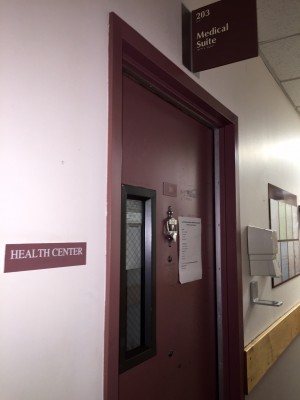Measles Outbreak: The Controversy Behind Vaccinations
February 26, 2015
Measles outbreaks across America, including one at Disneyland, have highlighted the growing issue surrounding parents not vaccinating their children. Students in New York are allowed to enroll in and attend school without vaccinations, such as the measles, mumps and rubella (MMR) vaccine. At Fordham University, where, last year there was an outbreak of 27 mumps cases, according to past Observer reporting.
According to the Centers for Disease Control and Prevention (CDC), 2014 had the most measles cases since 2000. One dose of the MMR vaccine is around 93 percent effective against at preventing measles and two doses are around 97 percent effective against measles.
New York State law requires students attending a postsecondary institution to prove that they have immunity to measles. The state also provides two exemptions, religious or medical, for immunization to students.
A student can claim a religious exemption if they “holds genuine and sincere religious beliefs which are contrary to the practice of immunization. The student requesting exemption may or may not be a member of an established religious organization,” according to the New York State Department of Health’s website.
A medical exemption can be given, according to the New York State Department of Health’s website, if a “student has a health condition which is a valid contradication to receiving a specific vaccine, then a permanent or temporary exemption may be granted.”
Students who do not get vaccinated or who do not get an exemption can be barred from attending their institution. Also, a court case from last year “upheld a New York City policy that bars unimmunized children from public school when another student has a vaccine-preventable disease,” according to the New York Times.
“Once a school realizes that there are people who have measles in the district they then have the ability to say if you haven’t been vaccinated for measles you need to stay home,” Bruce Berg, associate professor of political science, said.
Berg outlined the nature of vaccine exemptions: “Every state has religious exemptions and a number of states also have philosophical exemptions as well as medical exemptions.”
Many people do not get vaccinated for religious and medical reasons and there is a growing number of people who oppose vaccines, known as anti-vaccers.
Vaccines, or at least the idea of vaccines, “goes back hundreds or possibly thousands of years,” according to Alexander van Hoogenhouck-Tulleken, Helen Hamlyn Senior Fellow and M.D.. The fear surrounding vaccines stems from trust issues between parents and those who maintain that vaccines are beneficial toward people’s health according to van Tulleken.
To get people less scared to vaccinate people: “You have to create much better vaccine information. You have to not give people dogma. You do have to give people the freedom in choosing to vaccinate their children,” van Tulleken said.










